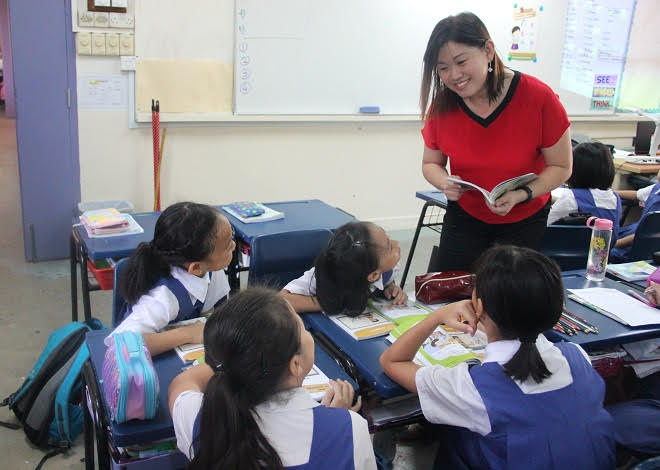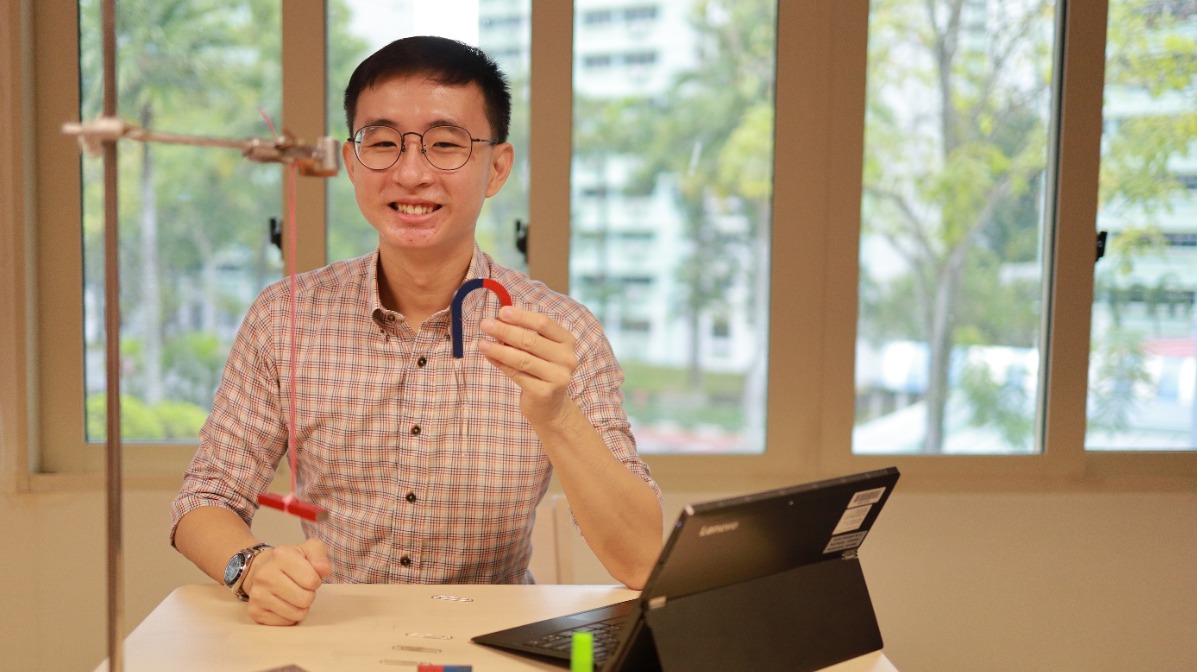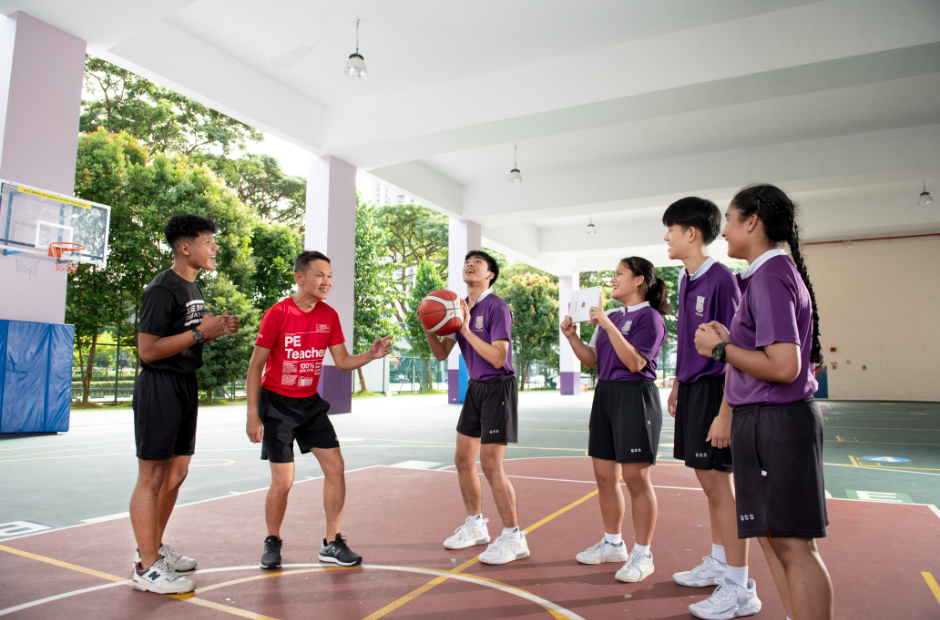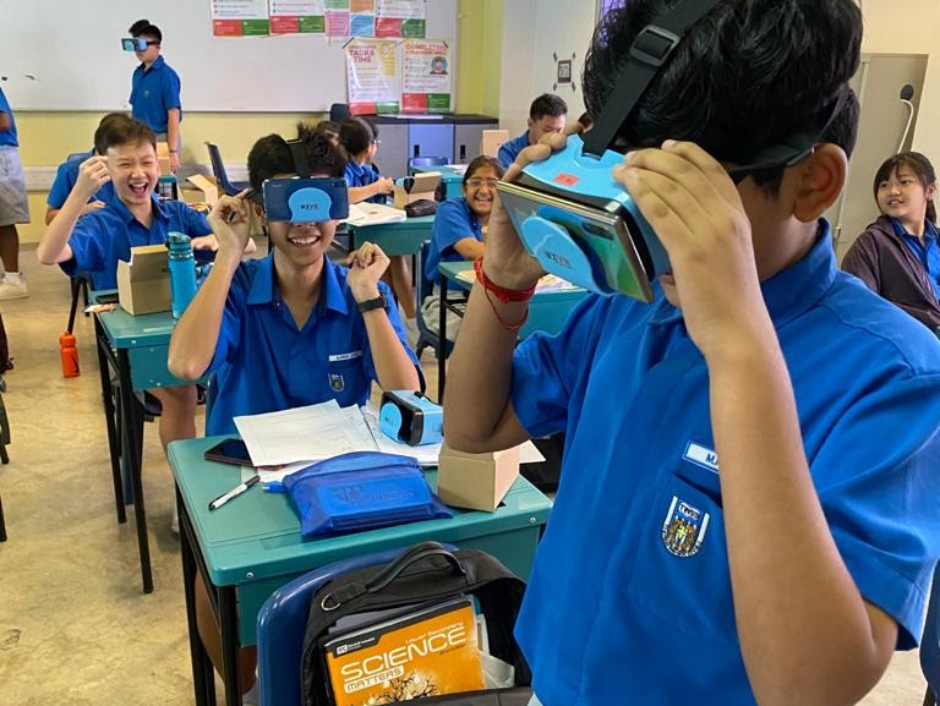When I was a beginning teacher, I once led an excursion to the Singapore Science Centre, during which one of my students handed me his empty drink packet. I was initially puzzled, but soon realised that this was how he had been brought up – his mother would throw his trash away, so he expected his teacher to do the same.
This, to me, was a serious problem. If students cannot be responsible for small matters, then how can they be expected to take responsibility for bigger roles?
Getting Started in Small Ways
My mother had taught me responsibility and independence through cleanliness. When I was three, she made me tidy my bed, fold my clothes and sweep my room floor. Over the years, I came to appreciate the importance of responsibility and respect for others. As a teacher, I am empowered to share and imbue these values through my teaching and programmes, such as the two routines I have introduced at CHIJ Kellock.
The “Kellock 5 minutes daily cleaning routine” sees students enthusiastically picking up brooms and dustpans at the end of each school day, cleaning their classrooms as a piece of classical music played over the public address system. The concept of “Kellock Canteen Keepers” showcases classes taking turns to manage the cleanliness of the canteen. These routines culminate in the once-a-term “Kellock Spring Cleaning”, whereby students and teachers work together to give their classrooms a thorough cleaning.
Besides seeing students take responsibility for their own learning environment, my colleagues were glad of other positive impacts such as the forging of a strong class identity and school spirit. It was heartwarming to see a Primary One class with each student bringing their own small pail; another with the teacher providing her personal vacuum cleaner for her students’ use during the cleaning routines; and yet another class with a teacher who plays her students’ favourite music to make the cleaning experience more enjoyable.
Cleanliness Movements
During my secondary school days, I recalled how as a student, I was encouraged to carry out Spring Cleaning but I did not really understand the intent behind these cleanliness routines. Thus, as part of the “Kellock Spring Cleaning” activity, I am motivated to share with our students the origin of the “Keep Singapore Clean Movement”, to help students understand why this movement was started and how it had progressed over the years. We also share interesting news on cleanliness routines in Singapore, as well as other countries such as Japan and Taiwan with students.
As part of the cleanliness movement, students were asked to reflect on the work done by the cleaners and were able to show their gratitude to the school cleaners by writing cards and preparing hampers for them. I am heartened to see the girls grow in character as well as develop a sense of appreciation towards the unsung heroes in school. After reading through the students’ messages, one of the cleaners was so touched that she told me it was the best retirement gift for her.
I am deeply encouraged by how far the cleanliness movement has come in CHIJ Kellock, and firmly believe that through these small ways, we will raise responsible students of character and leadership. These lessons will bring students far in their lives. Personally, these are little nuggets of life habits that we have helped students develop. On top of that, students reflect on these values and their learning points from these cleaning routines and through platforms such as the Character and Citizenship Education lessons. Facilitating meaningful and purposeful group discussions to engage students in sharing their thoughts and views on the importance on keeping Singapore clean is something close to my heart as the learning and impact it has on students is significant and enriching.
Kellock Volunteerism
I believe that every child, no matter how young, has the opportunity to improve their lives and those around them. This belief has enabled me to initiate and cultivate a spirit of volunteerism at CHIJ Kellock. The concept of volunteerism itself is not new, but is rarely practised in primary schools as students there are typically regarded as being too young to volunteer. Nonetheless, I received the full support of my Principal and set about developing platforms for CHIJ Kellock students to volunteer.
The first volunteerism platform was for upper primary students to host a group of senior citizens at our 2016 Chinese New Year concert. I was worried that there would be a low turnout, as most students might not be used to conversing with senior citizens. I was hoping for 20 volunteers, but almost 70 turned up to express their interest in this endeavour! I even had to turn some students away as the event was over-subscribed. I was moved beyond tears to see so many students having the heart to serve.
Subsequently, more platforms were introduced to help underprivileged children, promote green efforts, and raise awareness on kindness toward animals. The take up rate for these platforms is 100 per cent thus far, and I even have students coming up to me to ask for more opportunities to volunteer. The students’ enthusiasm and empathy overwhelms me with pride and joy.
The lesson here for me is that as teachers, we should never underestimate our students, however young. It does not matter who we are and where we come from, it is about how we can make a positive impact. My students at CHIJ Kellock proved that they too can make a difference to the lives of others, despite their tender age.






